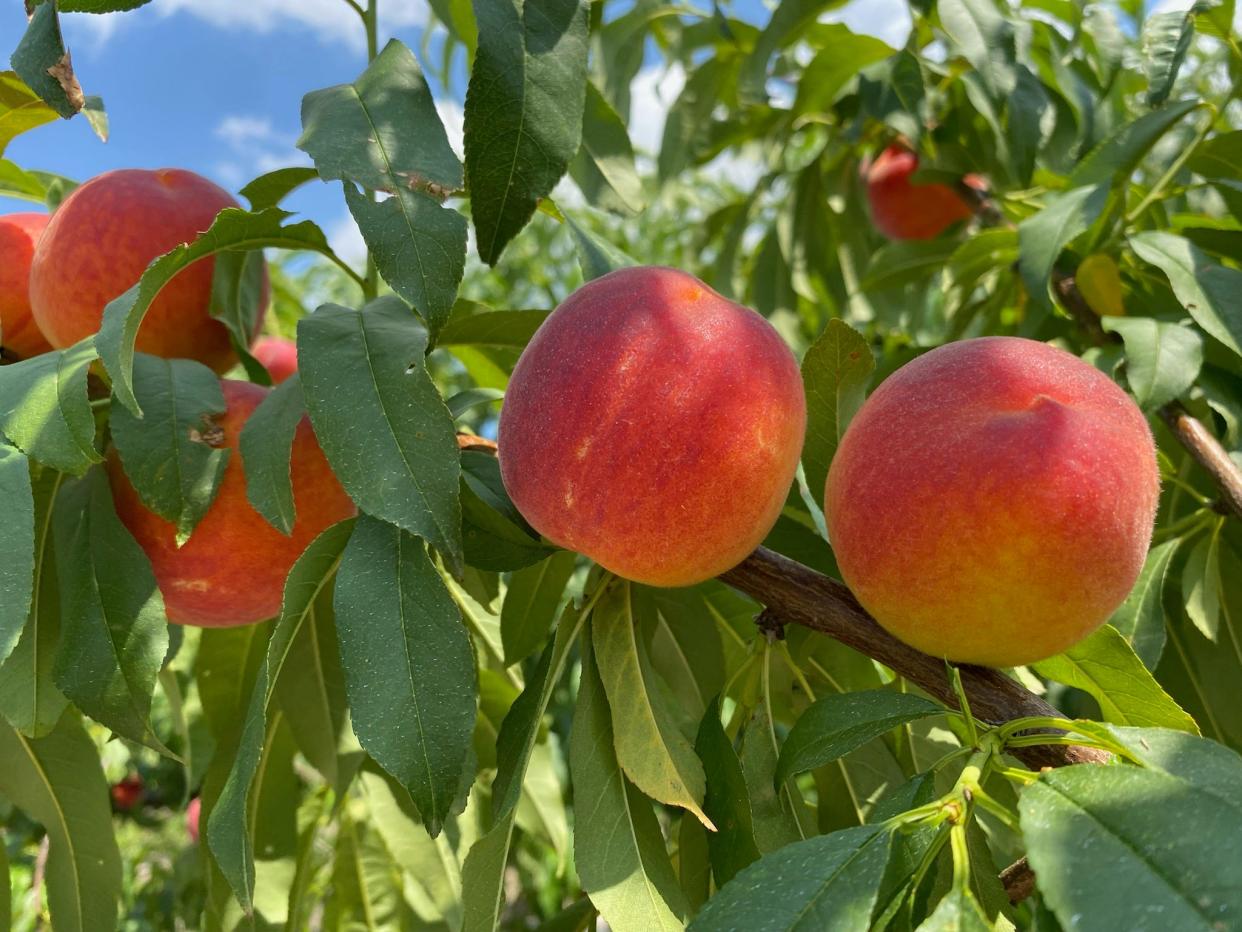Let the sun guide your garden

Sunlight is the singular source of energy for plants, and every plant has specific light requirements to thrive. Too much sunlight and crops may become stressed, while too little and they become unproductive. Light also serves as a signal for some plants to start or stop something, such as entering dormancy or to begin flowering.
Capturing sunlight and converting it into a storable form of energy is an incredible and complex process. Inside chloroplasts, which contain light-absorbing chlorophyll, energy from light is used to combine carbon dioxide and water into sugar. The byproduct of this essential reaction is oxygen.
Here in Florida, we are in the northern hemisphere, so the sun will always follow a track across the southern half of the sky. For reference, the horizon line is 0°, and directly overhead, the zenith, is 90°. The winter solstice in North Central Florida has a peak sun altitude of about 37° and will provide about 10 hours of sunlight. The summer solstice has a peak sun altitude of about 84° and will provide about 14 hours of sunlight. The difference between these two solstices is an altitude of 47° and four hours of sunlight. This difference will significantly affect the quality and duration of sunlight available to plants throughout the year. When trees or structures are taken into consideration, the available sunlight can be dramatically affected.
Before a fruit tree is planted or a garden bed is established, it is essential to understand the plant’s light requirements. Just the right amount of light when the plant needs it will result in healthier and more productive plants. Generally, leafy green crops need about three to five hours of sunlight and are best planted in the late fall through spring. Most leafy green crops will bolt, which is to produce flowers, mainly due to temperature and day-length increases. Tuber-producing crops like potatoes and sweet potatoes need full sun throughout the day. The same is true for most fruit-producing annual crops such as peppers, tomatoes and watermelon.
Some plants need chill hours, while others, such as tropical plants, need more consistent sunlight throughout the year. North Central Florida presents challenges to gardeners due to the extremes in temperature range, especially during the winter. Plants that have chilling requirements need cool temperatures to help them enter dormancy, produce healthy buds and emerge with robust growth. Plants that have chilling requirements include apples, blueberries, blackberries, nectarines, peaches, pears, persimmons and plums. Always choose plants that have a chilling requirement appropriate for the area they will be planted in. Lower-chill varieties are recommended over high-chill varieties. The University of Florida has lists of plants and their corresponding chill hour requirements.
Increased accumulation of chill hours can be aided by planting in a location that is kept in shade throughout the winter yet will receive full sun the rest of the year. To accomplish this, choose a planting location that is to the north of tall trees or structures and will be in shadow throughout the winter when the sun is closer to the horizon. Tropical plants may struggle in North Central Florida due to freezing temperatures and lack of adequate sunlight. To help mitigate this threat, consider planting tropical plants on the southern side of trees or large structures to maintain consistent light and temperature throughout the year. Some cold-sensitive plants, such as citrus, could benefit by planting on the south side of a large tree and partly under the canopy of the tree. In the fall and winter, the tree would still receive direct sunlight and be offered some protection from freezing due to the overhead tree canopy.
Before you plant, remember to look to the sun to guide your garden.
For more information, call the Marion County Extension office at 671-8400 or email ironhill@ufl.edu.
— Mark Bailey is the Sustainable Agriculture and Food Systems Extension Agent for UF/IFAS Extension Marion County. For more information, contact the Marion County office at 671-8400. The Extension Service is located at 2232 NE Jacksonville Road, Ocala, FL 34470.
This article originally appeared on The Gainesville Sun: Let the sun guide your garden

